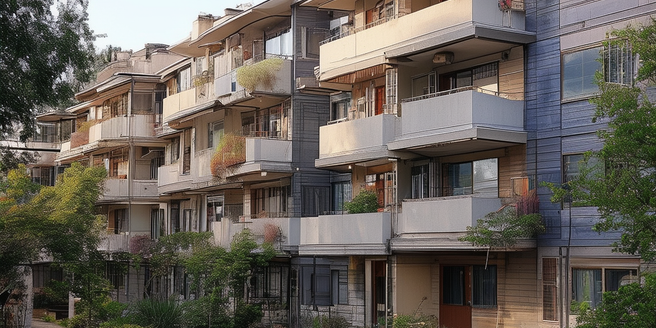Understanding Community Housing Models
Community housing models are diverse and designed to meet varying needs of residents, combining affordability with accessibility. Cooperative housing, for instance, allows members to own shares in the property, providing control and stability. Models such as inclusionary zoning integrate affordable units within new developments, promoting mixed-income communities. Public Housing Authorities (PHAs) manage projects specifically aimed at low-income individuals, while tenant management associations empower residents by involving them in decision-making processes. Non-profit organizations also play a crucial role in offering subsidized housing, often supplemented by support services. Understanding these models helps in identifying what might work best for a specific community.
Benefits of Affordable Housing Initiatives
Affordable housing initiatives are essential for creating stable communities and promoting economic diversity. They provide low- and moderate-income families with safe, decent, and budget-friendly living spaces, reducing their financial burden. Affordable housing also has broader societal benefits, such as reducing homelessness, stimulating job creation, and enhancing local economies. When families have stable housing, children are more likely to succeed academically. These initiatives often lead to improved health outcomes by alleviating overcrowding and providing access to essential services. Moreover, they foster inclusive communities, reduce crime rates, and can revitalize underinvested neighborhoods, ultimately driving regional economic growth.
Design and Sustainability in Modern Projects
Modern community housing projects prioritize design innovation and sustainable practices. Incorporating green building techniques, such as energy-efficient insulation and solar panels, reduces environmental impact and operational costs. Thoughtful layouts maximize space efficiency, promoting comfort within limited footprints. Use of sustainable, durable materials ensures long-term viability and lower maintenance expenses. These projects also focus on accessibility, making sure that they cater to individuals of all abilities. Projects often include communal spaces, gardens, and recreation areas to foster social interaction. By leveraging smart technology and sustainable design, these projects set new standards in housing while addressing environmental and social challenges.
Funding and Financial Considerations
Funding for community housing developments involves a mix of private and public sources. Government grants and subsidies can lower development costs, making projects feasible. This combination of funding not only supports initial construction but also sustains long-term affordability. Local banks sometimes provide special loans to support such initiatives. Tax credits, like the Low-Income Housing Tax Credit (LIHTC), incentivize private investment. Nonprofits might seek donations or philanthropic funding, while private developers might form partnerships for mutual benefit. Financial planning also requires assessing long-term costs like maintenance and utilities, ensuring projects remain affordable for residents over years. Securing diverse funding reduces risks and enhances the project’s financial stability.
Challenges Facing Community Housing Developments
Community housing developments face various challenges, such as securing funding, navigating regulatory barriers, and gaining community support. Limited land availability in urban areas complicates site selection, while zoning laws may restrict development types. Rising construction costs and labor shortages further strain budgets. Sustainable building practices could help mitigate some of these financial pressures. Innovative design solutions that make efficient use of available space can also provide significant benefits. Additionally, there can be resistance from local residents who fear changes in neighborhood dynamics. Effective communication and stakeholder engagement are crucial to overcoming opposition and ensuring that projects meet broader community needs, balancing between affordability and quality.
Future Trends in Community Housing Solutions
The future of community housing solutions is shaped by innovative technologies and evolving social priorities. Micro-housing and modular construction offer cost-effective, scalable development options. Advances in smart home technology promise enhanced living experiences with energy management systems and improved safety features. Additionally, the use of renewable materials is becoming more prevalent, further supporting sustainability goals. There is also a growing emphasis on integrating housing with wellness services, providing holistic support to residents. Furthermore, community land trusts and cooperative models are gaining traction as sustainable, equitable alternatives. By embracing these trends, future projects can better address diverse housing needs while promoting resilient and inclusive communities.



